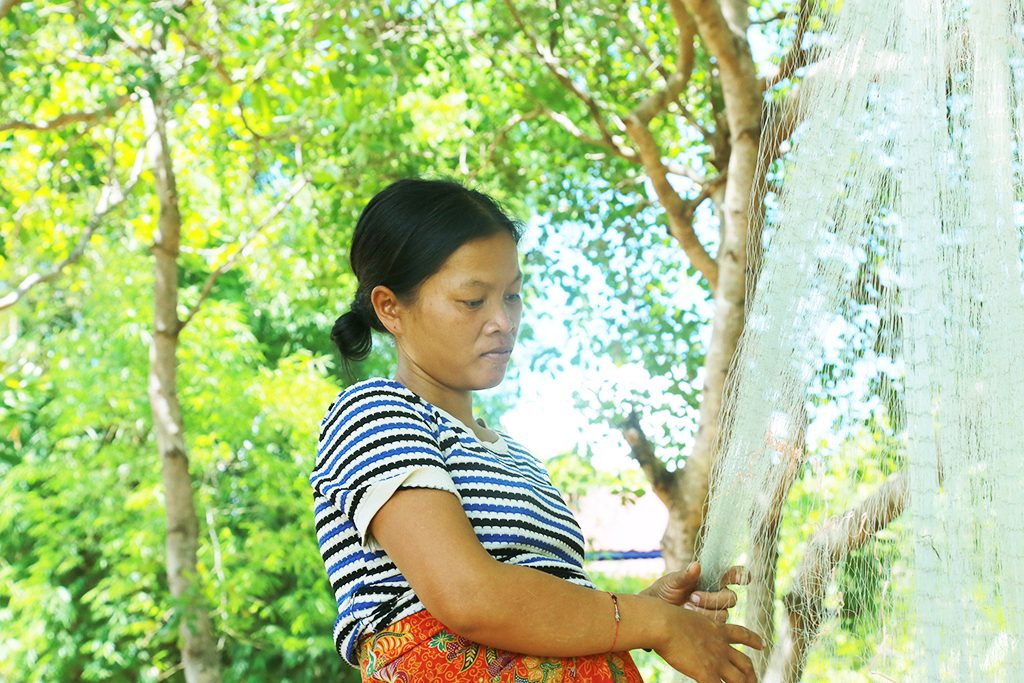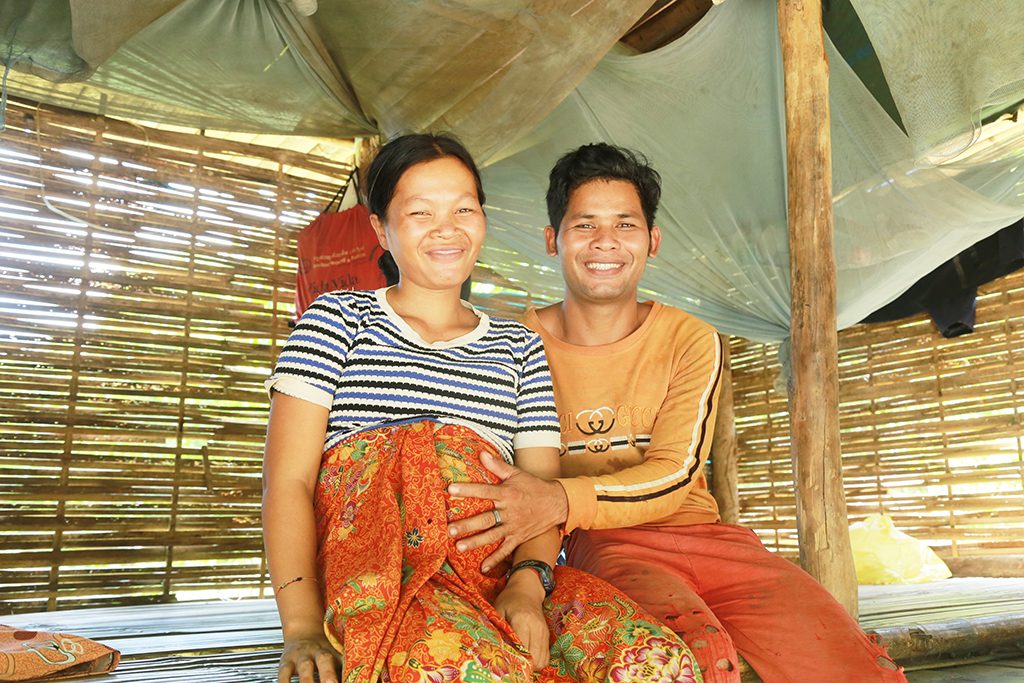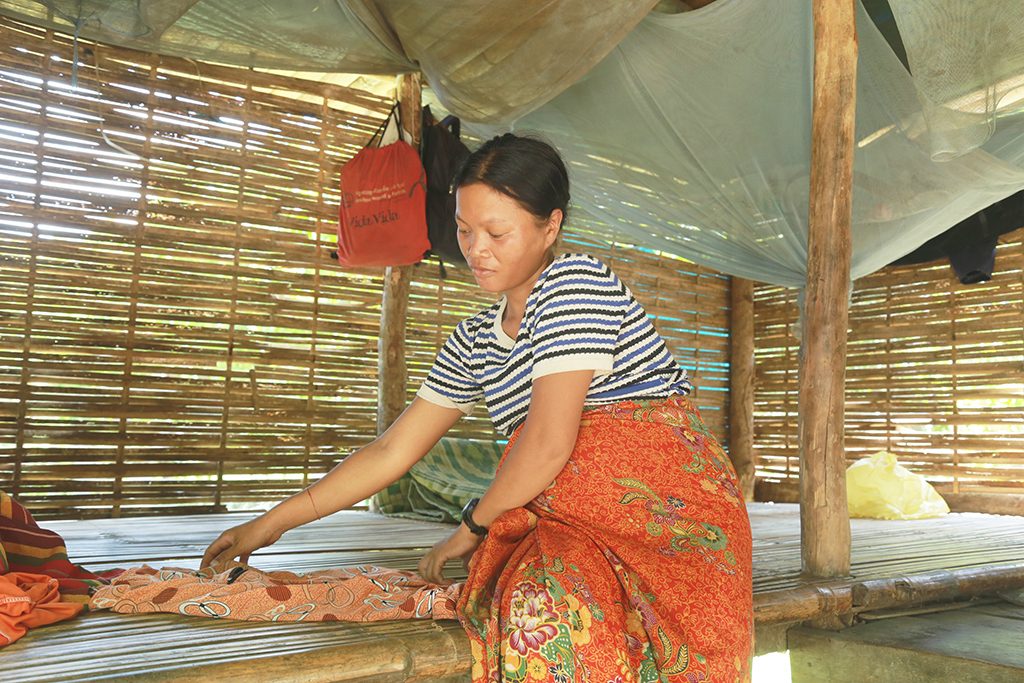Riet and her husband share their experiences of their first pregnancy and explain why they have decided to give birth to their second child at the health centre.

Riet, a 30-year-old woman from the Kavet ethnic minority, lives in a rural district of the Ratanak Kiri Province. She is the mother of a four-year-old boy and is expecting her second child in July 2024. Her family earns a living through rice farming and seasonally collecting non-timber forest products like mushrooms, nuts, rattan, and vines. Riet never attended school, and her husband, Sothith, dropped out of school in grade 6.
Riet recalls her first pregnancy and delivery experiences
Speaking with limited Khmer, Riet recalled her first pregnancy and delivery experiences. She shared that she did not visit a health centre for antenatal care check-ups because she was unaware of their importance and lacked the money. Additionally, cultural norms within the Kavet community discouraged her from leaving the house and eating certain foods while pregnant.
“I was told not to eat eggs, coconuts, or catfish, but drinking wine was fine. I craved eggs but had to resist for my baby’s sake,” Riet explained. “I wasn’t allowed to take iron supplements because we believed they would make the baby too large and difficult to deliver.”

Riet’s husband is touching his second baby in her womb. Photo credit: Plan International.
In early 2020, Riet went into labor and decided to deliver at home with a traditional birth attendant (TBA). She had not prepared anything for the newborn except wine. The TBA, lacking proper skills, waited passively for the baby to come out on its own.
Her husband, Sothith, was frightened and unsure of what to do. After a few moments, he decided to take Riet to the health centre, 8 kilometers away, by motorbike. Fortunately, they arrived in time, and the midwife helped deliver their baby safely.
“I was overjoyed when I heard my baby crying. My energy came back,” Sothith said with relief. “I am grateful to the midwife at the health centre for helping my wife and son.”
“I was overjoyed when I heard my baby crying. My energy came back. I am grateful to the midwife at the health centre for helping my wife and son.”
Sothith, Riet’s husband
Before they returned home, the midwife explained to them the importance of skilled birth attendants, family planning, vaccination, postnatal care, and the risks associated with unskilled TBAs. Following the midwife’s advice, Riet breastfed her son for 3 years and ensured he received all necessary vaccinations.
Riet’s second pregnancy
Now, 8 months pregnant with her second child, Riet has attended 4 antenatal care check-ups at the health centre and taken around 90 iron folic acid tablets as advised by the midwife.
“I was told that during pregnancy, I need to eat a variety of foods, avoid drinking and smoking, monitor my weight, and seek medical attention if I experience any symptoms like fever, bleeding, or anemia,” Riet shared. “I never miss an appointment with the health centre midwife because I want my child to be safe and healthy during delivery.”
Riet and her husband have prepared everything and plan to give birth at the health centre. She expresses gratitude to her husband for always caring for her and their children and to the midwife for providing essential prenatal, delivery, and postnatal care advice.
How Plan International helps
In Riet’s community, Plan International Cambodia and its partner, Bandos Koma, work with the health centre to improve the nutrition practices and access to nutrition related health services among vulnerable girls and boy’s under 5 and pregnant and lactating women. With our support, health centre staff provide awareness raising to pregnant women on the importance of delivering their baby with a skilled midwife at the health centre and pre and postnatal care. In addition, we support the health centre to provide treatment services to children with severe acute malnutrition and provide support for the rehabilitation of children with moderate acute malnutrition.



